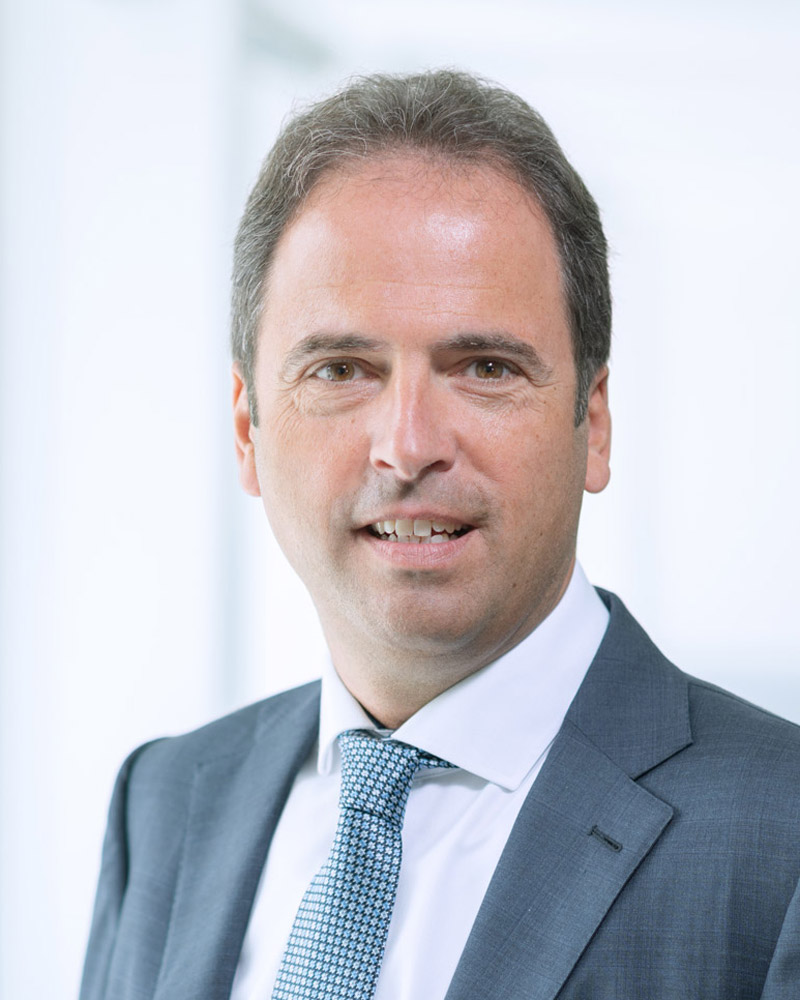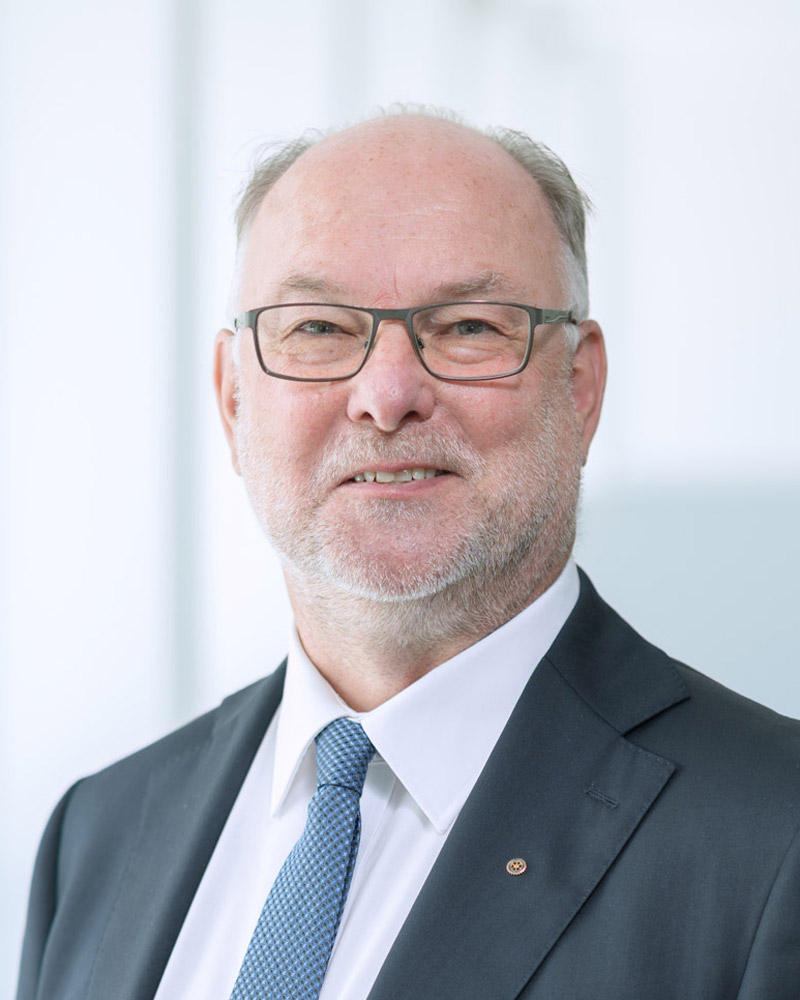4.2 Capital structure
Composition of share capital
At December 31st 2021, in CHF
| 22'000'000 registered shares of CHF 0.01 each | 220'000 |
|---|---|
| 12'600'000 bearer shares of CHF 0.05 each | 630'000 |
| Total ordinary share capital | 850'000 |
| Authorised additional share capital | none |
| Authorised contingent share capital | none |
| Participation certificates | none |
| Profit-sharing certificates | none |
| Registration and voting restrictions | none |
| Opting-out and opting-up provisions | none |
All shares are fully paid-up and – irrespective of their value – are entitled to vote and rank for dividend. Information about changes in equity for 2021 and 2020 is presented in the statement of changes in equity (Financial Report), page F09).
Changes in equity for 2020 and 2019 are shown in the statement of changes in equity in the Annual Report 2020 (page 67).
Convertible bonds and share options
As at December 31st 2021, Datwyler did not have any outstanding convertible bonds or options. On 30 May 2018, a 0.625% CHF 150 million bond (Financial Report, page F28, Note 18, Bond) was placed. The bond is repayable on 30 May 2024.
4.3 Internal organisation
Role of the Board of Directors
The Board of Directors is the ultimate decision-making, management and governing body of Datwyler. The Board consists of no fewer than five and no more than eleven members. At 31 December 2021, the Board comprised eight Directors. The roles of the Chairman and Chief Executive Officer (CEO) are separate. The Directors or companies and organisations which they influence have no executive functions in the Group and do not have any business relationship with the Datwyler Group. The current Chairman, Paul Hälg, was the CEO of the Datwyler Group from 2004 to 2016.
The other members of the Board never served in executive functions for the Datwyler Group. No Director holds cross-directorships with other Directors through involvement in other listed companies. When members are appointed to the Board of Directors, care is taken to ensure that the kinds of competencies important to Datwyler with regard to the various industries, technologies and markets are suitably represented.
Directors are elected for one-year terms. They are eligible for re-election for further periods, with no limit on the number of terms they may serve. Directors retire at the Annual General Meeting following their 70th birthday. Each class of shares is entitled to nominate at least one representative to the Board. The average age of the Directors currently in office is 61 and their average tenure is 6.6 years.
Main responsibilities and operation of the Board
The Board organises itself. Its main responsibilities are defined in Art. 716a of the Swiss Code of Obligations. In order to discharge these responsibilities efficiently, the Board has authority under the Rules of Organisation and Business Conduct of Dätwyler Holding Inc. to appoint Committees from among its members to deal with specific matters. There are currently two Committees: the Audit Committee and the Nomination and Compensation Committee.
In accordance with the Rules of Organisation, the Board holds at least five regular meetings a year, each lasting between half a day and one full day. A two-day annual strategy workshop is held to review and develop the strategy. The strategy workshop is usually combined with a visit to one of the locations. Special Board meetings are held when necessary. Agendas for Board meetings are set by the Chairman in consultation with the CEO and CFO. Any Director may request that an item be placed on the agenda or that a special meeting be held. The CFO acts as Secretary to the Board.
Directors receive papers and information in good time in advance of meetings to allow them to prepare for discussion of each item. Depending on the nature of the business to be transacted, the Chairman may invite members of the Executive Management to provide information at Board meetings and participate in an advisory capacity. The Board operates as a team and strives to reach decisions unanimously, wherever possible.
If a unanimous decision cannot be reached, the minutes of the meeting must give the names of who voted and how they voted. The Board has a quorum when at least a majority of its members is present. Its resolutions are passed by a majority of the members present. The Chairman is also a voting member and has the casting vote in the event of a tie. Resolutions may also be adopted by telephone conference or by circular letter.
During 2021, the Board held six meetings. In addition, there were two conference calls and two decisions by circular letter. Two Directors were absent for one conference call. Some of the Directors participated in some meetings by telephone due to the restrictions of the pandemic.
Operation of the Committees
The Committees have written terms of reference specifying their responsibilities. In addition to these written terms, the Audit Committee has defined its tasks and responsibilities in a detailed checklist. The Committees generally prepare the groundwork for decision-making by the full Board. They meet at the call of their chairmen as often as necessary to discharge their duties, but at least once a year. Their meetings usually last half a day. All Directors, Executive Management members and the external auditors may request a meeting of the Committees. Depending on the nature of the business to be transacted, meetings are attended by the CEO, CFO or, if required, a representative of the external auditors or a specialist in an advisory capacity.
The agendas for Committee meetings are set by the respective chairmen in agreement with the CEO and CFO. Committee members receive papers and information in advance of meetings to allow them to prepare for discussion of each item. At least two members must be present to constitute a quorum. The Committees pass their resolutions by an absolute majority of the votes cast. In the event of a tie, the chairman has the casting vote. The Committees keep a record of their decisions and recommendations in minutes submitted to the Board and report the results of their activities at the next Board meeting.
Audit Committee
The Audit Committee consists of at least three Directors, each of whom has experience in finance and accounting, who are appointed by the Board from among its members for a period of one year. The Audit Committee appoints its chairman. Members of the Audit Committee are: Jürg Fedier (Chairman), Gabi Huber and Hanno Ulmer. In 2021, the Audit Committee held four meetings with all members present, each of which was attended by the CEO and CFO. The reporting of the internal audit is a standard agenda item at the meetings of the Audit Committee. The representatives of the external auditors attended all the meetings for the discussion of selected items. In 2021, other external specialists were not called in.
Responsibilities of the Audit Committee:
To ensure a comprehensive and effective audit programme for Dätwyler Holding Inc. and the Datwyler Group.
To comment on the annual and consolidated financial statements.
To comment on the audit plan and results of audits.
To receive recommendations from the external auditors, discuss the recommendations with the Executive Management and provide a summary for the Board of Directors.
To present the Executive Management's proposal for the appointment of Dätwyler Holding Inc.'s external auditors to the Board of Directors for consideration by the Annual General Meeting of Shareholders.
Nomination and Compensation Committee
The responsibilities of the Nomination and Compensation Committee are recorded in the Remuneration Report.
Division of responsibilities between the Board of Directors and Executive Management
The authority and responsibilities delegated to the Board of Directors and Executive Management are laid down in the “Rules of Organisation” as provided in Article 20 of the Articles of Association of Dätwyler Holding Inc. These rules are updated on a regular basis. They describe the duties and responsibilities of the Board of Directors and define the duties and responsibilities of the Executive Management, presided over by the CEO. In addition to the non- delegable functions reserved for the Board of Directors by law, the Rules of Organisation delegate the following duties, among others, to the Board:
To determine the principles of corporate strategy.
To make decisions on financial policy.
To adopt resolutions on the establishment of new business units and discontinuation of existing ones.
To adopt resolutions on the setting up of new sites and closure of existing ones.
To adopt resolutions on the acquisition and disposal
of equity holdings.
To adopt resolutions on the acquisition, encumbrance and disposal of land and buildings.
To review the risk management system.
As a rule, the Board of Directors approves major projects it deems expedient together with the rolling forecast. For urgent capital expenditures not included in the budget, levels of authority are defined and a return on investment analysis must be prepared. Capital expenditures exceeding CHF 3 million must be approved by the full Board of Directors.
The policies set out in the “Rules of Organisation” are detailed for all business and functional areas in the following written documents: “Division of Responsibilities of the Executive Management” and “Investment Manual”. Datwyler operates a systematically decentralised management system within a clear framework. The Group fosters an entrepreneurial culture where decisions are taken at the lowest possible level close to the market and customers.
Information and control systems for monitoring the Executive Management
The Board has an internal control system in place to monitor and control the Executive Management. This is based on an institutionalised, annual management process cycle, of which the key elements available to the full Board of Directors are as follows:
Monthly report with a business area and Group consolidation: actual and forecast figures, including variance analyses and a written commentary by the business area managers on current developments and potential risks.
Interim and annual report.
Quarterly review and approval of the rolling forecast for 18 months and annual review and approval of the three-year medium-term plan.
Annual review and approval of the updated Group and business area strategies.
Uniform Group-wide management system with integrated risk evaluation for strategic projects.
Special reports on major items of capital expenditures, acquisitions and alliances.
Inclusion of Executive Management members at Board and Committee meetings.
In addition to these institutionalised information and control systems, the Chairman of the Board and CEO engage in regular dialogue regarding all important business. In addition, the CEO and CFO are required to inform the Chairman of the Board without delay of any important unusual events or developments.
Internal Audit
Internal Audit reports to the Audit Committee and is under the direct administrative line management of the CFO. Every year it draws up a risk-based audit plan, which is approved by the Audit Committee. The interval between audits of Group companies varies between two and five years, depending on the size and importance of the individual company. Due to the pandemic, some of the audits had to be conducted remotely using online data control and video conferencing. To optimise cooperation, the Head of Internal Audit meets regularly with the representatives of the external auditors. At their meetings they harmonise audit plans and audit priorities and exchange useful information.
Internal Audit verifies compliance with the division of responsibilities and monitors the internal control system, risk management and the efficiency of the structures and processes. The findings and recommendations of Internal Audit are recorded in written reports.
Following completion of the audit, the findings are reviewed and discussed with the local management. In coordination with Internal Audit, the local management defines specific corrective measures and a timetable for implementation. Business area management and local management each issue an opinion. The report (including the corrective measures, the timetable for implementation and the opinions) is sent to the line managers, the external auditors, Executive Management and the Audit Committee. The Head of Internal Audit presents the significant findings contained in the audit reports at the respective next meeting of the Audit Committee. Comments and suggestions of the Audit Committee and the external auditors are taken into consideration in planning and conducting audits. Internal Audit also ensures that all discrepancies raised by its audits are addressed within the prescribed period and submits a report on such matters to Executive Management and the Audit Committee.
Risk Management
Datwyler is aware of the importance of systematic risk management for lasting corporate success. Final responsibility in assessing risks lies with the Board of Directors. The Head of Internal Audit is responsible for the Group-wide coordination of risk management. He is supported by risk officers in both business areas.
As part of an ongoing process to ensure business continuity, risks are continuously identified and assessed throughout the Group. An open exchange of views on opportunities and risks is encouraged at all levels of the company and is part of the corporate culture. The management of each business area is responsible for significant risks and informs the Executive Management and the Board of Directors. The findings are recorded in a risk management software. The CFO and the Head of Internal Audit monitor the risk management process through active exchanges and quarterly meetings with the business areas. In particular, risks are regularly discussed at the meetings between the business area management and the Executive Management. These reviews ensure that uniform valuation approaches are applied and that similar risks are treated equally across the Group business areas. The consolidation of risks and the annual reporting to the Board of Directors are carried out by the Head of Internal Audit.
Datwyler basically divides the risks recorded into four categories: Strategic risks, operational risks, financial risks and compliance risks. Strategic risks include risks relating to the industry and the market, external stakeholders, social and environmental developments, corporate governance and catastrophic events. Datwyler also regularly assesses and minimises the risks of criminal cyber attacks as part of its strategic risks. For their part, operating risks include risks along the value chain, risks from investment activities and personnel and cultural risks. The financial risks category includes market risk, liquidity and credit risk, capital structure and compliance with tax and accounting regulations. Finally, compliance risks are defined as the risks arising from laws, regulations and other rules and regulations. This includes existing and new regulations on sustainability issues. Global risks such as climate change and other environmental, social and governance sustainability risks are assigned to the appropriate risk category based on their strategic, operational, financial or compliance impact.
Risks are assessed on the basis of the probability of occurrence and the potential loss amount. Once the individual risks have been identified and assessed, it is the responsibility of the business area management to develop a series of measures to reduce the risk of occurrence and the loss potential for each risk. The implementation of these measures is monitored as part of the continuous risk management process and taken into account in the next risk evaluation.
4.4 Board of Directors
The Directors of Dätwyler Holding Inc. are – with the exception of the representative of the public shareholders – also Directors of Pema Holding AG and Dätwyler Führungs AG. Pema Holding AG is the majority owner of Dätwyler Holding Inc. See substantial shareholders and shareholder structure.
Pursuant to Article 14 of the Dätwyler Holding Inc. Articles of Association, the number of mandates members of the Board of Directors may hold on management and supervisory boards of legal entities outside the Group is restricted as follows: Four mandates in exchange-listed enterprises, ten mandates in unlisted enterprises and fifteen mandates in other legal entities such as foundations and associations.

Dr. Paul J. Hälg
Chairman
term expires in 2022

Dr. Hanspeter Fässler
Vice Chairman
Chairman of the Nomination and Compensation Committee
term expires in 2022

Jens Breu
Director / Public shareholders‘ representative
Member of the Nomination and Compensation Committee
term expires in 2022

Claude R. Cornaz
Director
Member of the Nomination and Compensation Committee
term expires in 2022

Jürg Fedier
Director / Public shareholders‘ representative
Chairman of the Audit Committee
term expires in 2022

Martin Hirzel
Director / Public shareholders‘ representative
term expires in 2022

Dr. Gabi Huber
Director
Member of the Audit Committee
term expires in 2022

Hanno Ulmer
Director
Member of the Audit Committee
term expires in 2022
Changes in the composition of the Board of Directors
At the Annual General Meeting 2021, Zhiqiang Zhang stepped down from the Board of Directors. Swissmem President Martin Hirzel was elected as a new Director and representative of the public shareholders.
At the Annual General Meeting 2022, Hanno Ulmer will step down from the Board of Directors. Judith van Walsum will be proposed for election as a new Director and representative of the public shareholders. Judith van Walsum is Chief Financial Officer and Head of IT of Roche Diabetes Care, a global division of the Roche Group.
4.5 Executive Management
Pursuant to Article 19 of the Dätwyler Holding Inc. Articles of Association, the number of mandates members of the Executive Management may hold on management and supervisory boards of legal entities outside the Group is restricted as follows: Two mandates in exchange-listed enterprises, five mandates in unlisted enterprises and ten mandates in other legal entities such as foundations and associations.

Dirk Lambrecht
Chief Executive Officer (CEO)
Head of Business Area Industrial Solutions / Chief Operating Officer (COO)

Walter Scherz
Chief Financial Officer (CFO)
Head of Group Function Finance & Shared Services

Dirk Borghs
Head of Business Area Healthcare Solutions /
Chief Operating Officer (COO)

Dr. Frank Schön
Chief Technology Officer (CTO)
Head of Group Function Technology & Innovation
Changes in the Executive Management in the reporting year
Torsten Maschke, Head of the Industrial Solutions Business Area, stepped down from the Executive Board at the end of March 2021 and left Datwyler. The Industrial Solutions Business Area has been led directly by CEO Dirk Lambrecht since 1 April 2021.
Changes in the Executive Management in the reporting year
There have been no changes in the Group Management since 31 December 2021.
Management contracts
There are no management contracts with external individuals or companies to perform management tasks for the Datwyler Group.
4.8 Statutory auditors
KPMG was mandated to audit the consolidated financial statements at the Annual General Meeting 2018. The auditors are appointed by the Annual General Meeting of Shareholders for a period of one year. In accordance with the Swiss Code of Obligations, the normal rate of rotation for the auditor in charge is seven years. Some of the Group companies are audited by other audit firms.
Fees paid in 2021 to the
statutory andother auditors
In CHF
| Statutory auditors | Other auditors | |
|---|---|---|
| Auditing services, total | 580'000 | 212'000 |
| Additional services, total | 6'000 | 161'000 |
| Tax consulting | 6'000 | 159'000 |
| Legal consulting | – | 2'000 |
| Transaction services | – | – |
| Other advisory services | – | – |
Representatives of the statutory auditors attend all meetings of the Audit Committee for the discussion of certain items. Four meetings were held in 2021. At each meeting, the statutory auditors present a written report on the progress of their work. The core element of the auditors' reporting is the annual audit report with recommendations to the Audit Committee.
The supervisory body for the external statutory auditors is the overall Board of Directors. It conducts an annual evaluation of the statutory auditors. This is based on the following criteria:
Professional competence
Scope and quality of their written reports and verbal statements
Practicability of recommendations
Priority setting
Transparent and effective communication and coordination
Ability to meet deadlines
Independence
Fees
The members of the Board of Directors rely on the competencies and experience they have gained in similar roles with other companies, on the statutory auditors' reports as well as on the comments made by the Audit Committee. The responsibilities of the Audit Committee are defined in the chapter Internal organization.
4.9 Information policy
The Datwyler Group maintains an open dialogue with all stakeholders. In the interests of shareholders, Datwyler especially fosters relationships with investors, banks and media representatives. Communication takes place through the Annual Report, Interim Report, Annual General Meeting and at least one press and analyst conference every year. Through press releases and on its website datwyler.com, Datwyler provides up-to-the-minute information on all important projects as required by the ad hoc publicity rules of SIX Swiss Exchange.
The ad hoc press releases are available in the archive on the website. On the website, interested persons can also register for the distribution list for the ad hoc announcements. Contact details as well as a financial calendar with the important dates are also available on the website. Official notices concerning Datwyler are published in the Swiss Official Gazette of Commerce. Notices and invitations to registered shareholders are made in writing.

